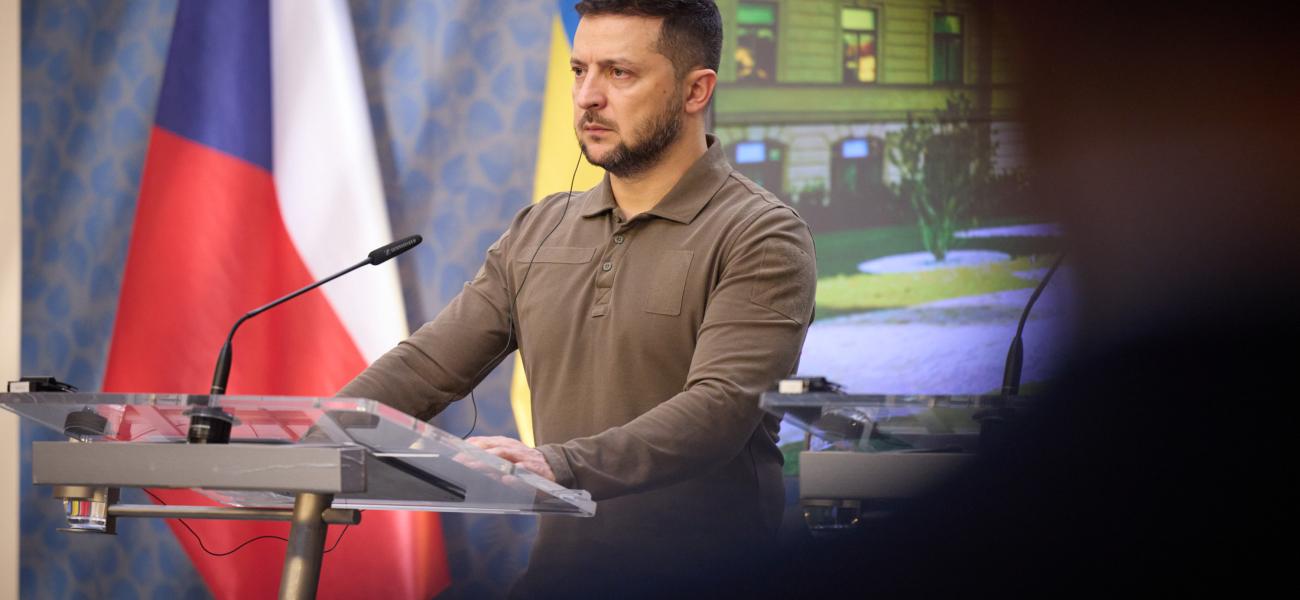
How to End the War in Ukraine: On Stopping the Fighting and Building the Peace
April 26, 2023
Rajan Menon
This is a summary of an article originally published by Boston Review.
- “Realists and progressives blame Russia’s invasion [of Ukraine] principally, sometimes solely, on NATO expansion — a needless, provocative policy that, as they see it, posed an ‘existential threat’ to Russia. Neoconservatives and many liberal internationalists, despite their political differences on other fronts, deny that NATO expansion had this effect. … Instead, they see Putin’s ingrained imperial instincts and fear of a democratic Ukraine as the root cause of the war. The trouble with this impasse is that each camp makes blame for the war an all or nothing affair. After a year of enormous violence and destruction, we need a far more nuanced understanding of the war — its causes, how it might be ended, and the challenges that will remain once it is over.”
- “The deeper the West gets pulled into the war, the greater the danger of escalation, even though no one can calculate its probability with credible confidence. … The hard truth is that we do not, and cannot, predict the probability of escalation reliably because we will never have the necessary information. Therefore, the West’s engagement in this war will evolve without any reliable basis for foreseeing, and therefore averting, what could be a catastrophic turn of events. No amount of debating the risks of escalation will release us from this predicament.”
- “The terms of a prospective peace are easy to sketch but will be difficult, perhaps even impossible, to sell to the warring parties, certainly in the short term. But as the war continues, battlelines evolve, and the human and material costs mount, the positions of Moscow and Kyiv may shift. This much is clear: discussions about the parameters of a settlement need to begin in earnest now, and without the shopworn accusations of appeasement or warmongering that have generated more heat than light.”
- “Two things seem clear.”
- “First, no matter how the war is resolved, none of the parties will achieve the outcome they deem ideal, so they must consider realistic and acceptable long-term compromises, hard though that will be.”
- “Second, the pathway may consist of short-term deals that stop the fighting, even if tenuously. Ukrainians, however, are committed to victory and are convinced that it is within reach, and the West, above the United States, has stated publicly that it will stand behind Kyiv. This will make it difficult for Washington to propose compromises that Kyiv opposes, unless the latter faces no choice. Yet, no matter the West’s declarations of fealty, international politics remains a pitiless arena in which words can end up meaning nothing — something that is well understood in Kyiv.”
- “For these and other reasons, we need a debate on the war that, in tone and substance, improves on what is currently on offer and charts a way forward so that the fighting ends.”
Read the original article at Boston Review
Author
Rajan Menon
Rajan Menon is the director of the Grand Strategy Program at Defense Priorities, Spitzer Professor Emeritus at the Powell School of City College of New York, and a senior research fellow at Columbia University’s Saltzman Institute for War and Peace Studies. He is the author (with Eugene Rumer) of Conflict in Ukraine: The Unwinding of the Post-Cold War Order (MIT Press, 2015).
The opinions expressed herein are solely those of the author. Photo shared by the Ukrainian presidential press service via a CC BY-NC-ND 4.0 license.
Click to Subscribe
Russia Matters offers weekly news and analysis digests, event announcements and media advisories.
Choose and sign up here!
Recent Analysis
CIA Director Burns on Ukraine: ‘We’re Running Out of Time to Help Them’
April 25, 2024
George W. Bush Presidential Center
Personnel Stagnation to Splinter Putin Elite With Battle of Lost Generations
April 19, 2024
Andrey Pertsev
Recent Posts
Mitter, Wishnick: Alignment, Not Alliance for Russia-China Relationship
April 18, 2024
Conor Cunningham
Polls Show Record Low Number of Russians Willing to Permanently Move Abroad
April 12, 2024
Simon Saradzhyan
Fiona Hill Delivers Insights on Russia's Perennial Role in Global Geopolitics
March 21, 2024
Conor Cunningham
How Much Would 0.25% of Ramstein Group Members’ GDP Really Raise for Ukraine?
March 07, 2024
Conor Cunningham and RM Staff
